Kenya: University of Nairobi
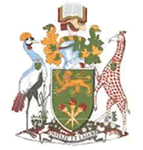 KEY PERSONNEL: Dr. Onesmus Gachuno (PI), Patrick Mburugu (Co-PI), George Wambiri (Finance Administrator), Dr Patrick Mburugu (eLearning Coordinator), Ms Ruth Emboyoga Mbuthia (Training Coordinator)
KEY PERSONNEL: Dr. Onesmus Gachuno (PI), Patrick Mburugu (Co-PI), George Wambiri (Finance Administrator), Dr Patrick Mburugu (eLearning Coordinator), Ms Ruth Emboyoga Mbuthia (Training Coordinator)
PROJECT TITLE: Kenya Inter-Professional Training for HIV (KIT- HIV) Cycle II
PROJECT YEAR 1 RECAP:
The KIT-HIV team trained 16 facilitators to lead 3 workshops with 394 learners trained to deliver high-quality team-based HIV care. Of the 394 learners, 300 were pre-service and 94 were postgraduate. They developed an interprofessional approach to learning to encourage teamwork.




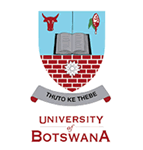 KEY PERSONNEL: Dr. Keneilwe Motlhatlhedi (PI and Training Coordinator), Nthabiseng Phaladze (Co-PI), Dr. Mosepele Mosepele (Additional key personnel), Malebogo Masono (Finance administrator), Ari Ho-Foster (Finance administrator), Dr. Mmoloki Molwantwa (eLearning Coordinator)
KEY PERSONNEL: Dr. Keneilwe Motlhatlhedi (PI and Training Coordinator), Nthabiseng Phaladze (Co-PI), Dr. Mosepele Mosepele (Additional key personnel), Malebogo Masono (Finance administrator), Ari Ho-Foster (Finance administrator), Dr. Mmoloki Molwantwa (eLearning Coordinator)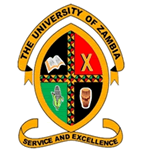 KEY PERSONNEL: Dr. Catherine Ngoma, Co-PI; Dr. Selestine Nzala, Co-PI, Ms. Maureen Makoleka, Co-PD and Co-Training Coordinator; Ms. Ruth Wahila, Co-PD and Co-Training Coordinator; Kennedy Siamutondo, eLearning Coordinator; Rhoidah Hamweene, Finance Administrator
KEY PERSONNEL: Dr. Catherine Ngoma, Co-PI; Dr. Selestine Nzala, Co-PI, Ms. Maureen Makoleka, Co-PD and Co-Training Coordinator; Ms. Ruth Wahila, Co-PD and Co-Training Coordinator; Kennedy Siamutondo, eLearning Coordinator; Rhoidah Hamweene, Finance Administrator KEY PERSONNEL: Dr. Mosa Moshabela (PI), Dr. Nisha Nadesan-Reddy (Project Director, Training Coordinator), Prem Ramnarain (Finance Administrator), Sandile Nzuza (eLearning Coordinator)
KEY PERSONNEL: Dr. Mosa Moshabela (PI), Dr. Nisha Nadesan-Reddy (Project Director, Training Coordinator), Prem Ramnarain (Finance Administrator), Sandile Nzuza (eLearning Coordinator)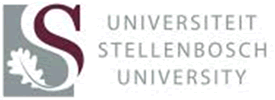 KEY PERSONNEL: Prof. Ian Couper (Co-PD), Prof. Hoffie Conradie (Co-PD and eLearning Coordinator), Ms. Suzaan Sutherland (Training Coordinator), Ms. Lindsay-Michelle Meyer (Finance Administrator)
KEY PERSONNEL: Prof. Ian Couper (Co-PD), Prof. Hoffie Conradie (Co-PD and eLearning Coordinator), Ms. Suzaan Sutherland (Training Coordinator), Ms. Lindsay-Michelle Meyer (Finance Administrator)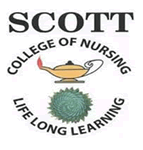 KEY PERSONNEL: Makhabiso Ramphoma (PI/PD), Lebohang Sepipi (Administrator and Training Coordinator), Pule Moabi (Deputy PD), Makhamathoane Mosoeunyane (Finance Administrator), Matsepo Nchaba (Team Secretary) Mosala Sojane (eLearning Coordinator)
KEY PERSONNEL: Makhabiso Ramphoma (PI/PD), Lebohang Sepipi (Administrator and Training Coordinator), Pule Moabi (Deputy PD), Makhamathoane Mosoeunyane (Finance Administrator), Matsepo Nchaba (Team Secretary) Mosala Sojane (eLearning Coordinator)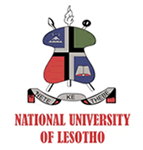 KEY PERSONNEL: Professor K.D. Mogobe (PI/PD and Co-Finance Administrator), Ms. Ntsoaki Ralejoana (Co-Finance Administrator and Logistics Coordinator), Mr. Lebajoa Mphatsi (eLearning Coordinator)
KEY PERSONNEL: Professor K.D. Mogobe (PI/PD and Co-Finance Administrator), Ms. Ntsoaki Ralejoana (Co-Finance Administrator and Logistics Coordinator), Mr. Lebajoa Mphatsi (eLearning Coordinator)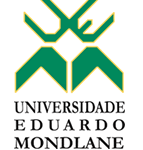 KEY PERSONNEL: Maria Alexandra Rodrigues (Principal Investigator), José Braz (training coordinator) Amin Daud (eLearning coordinator), Milva Nguenha (finance manager)
KEY PERSONNEL: Maria Alexandra Rodrigues (Principal Investigator), José Braz (training coordinator) Amin Daud (eLearning coordinator), Milva Nguenha (finance manager)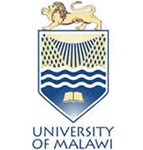 KEY PERSONNEL: Dr. Thandie Mwalukomo (PD, eLearning Coordinator, Training Coordinator), Jane Mallewa (Co-PI), Dr. Louisa Nsai Alfazema (Co-PI), Godfrey Chisoni (Finance Administrator)
KEY PERSONNEL: Dr. Thandie Mwalukomo (PD, eLearning Coordinator, Training Coordinator), Jane Mallewa (Co-PI), Dr. Louisa Nsai Alfazema (Co-PI), Godfrey Chisoni (Finance Administrator)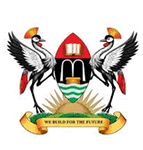 KEY PERSONNEL: Dr. Fred C. Semitala (Co-PD), Dr. Nelson K. Sewankambo (Co-PD), Dr. Isaac Kimera (Training Coordinator), Shardrack Wanyina (eLearning Coordinator/M&E), Martin Muddu (Advisor HIV Care and treatment), Moses Adengo (Finance Administrator)
KEY PERSONNEL: Dr. Fred C. Semitala (Co-PD), Dr. Nelson K. Sewankambo (Co-PD), Dr. Isaac Kimera (Training Coordinator), Shardrack Wanyina (eLearning Coordinator/M&E), Martin Muddu (Advisor HIV Care and treatment), Moses Adengo (Finance Administrator)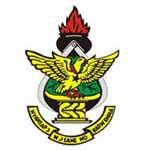 KEY PERSONNEL: Dr. Edward Dassah (Co-PD), Betty Norman (Co-PD), Veronica Dzomeku (Co-PD), Nana Adwoa Baidu (Training Coordinator, eLearning Coordinator, Finance Administrator)
KEY PERSONNEL: Dr. Edward Dassah (Co-PD), Betty Norman (Co-PD), Veronica Dzomeku (Co-PD), Nana Adwoa Baidu (Training Coordinator, eLearning Coordinator, Finance Administrator)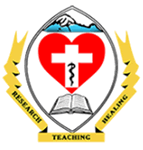 KEY PERSONNEL: Prof. Alfred Kien Mteta (PI), Dr Hadija Semvua (Program Coordinator), Dr. Agnes Msoka (Project Administrator and Training Coordinator), Gilda Jacob (Finance Administrator), Glory Ibrahim (eLearning Coordinator)
KEY PERSONNEL: Prof. Alfred Kien Mteta (PI), Dr Hadija Semvua (Program Coordinator), Dr. Agnes Msoka (Project Administrator and Training Coordinator), Gilda Jacob (Finance Administrator), Glory Ibrahim (eLearning Coordinator)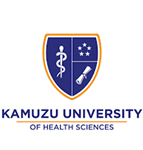 KEY PERSONNEL: Evelyn Chilemba (Co-PI), Diana Jere (Co-PI), Mike Rashid (Finance Administrator), Billy Konyani (eLearning Coordinator), Norah Lungu (Training Coordinator)
KEY PERSONNEL: Evelyn Chilemba (Co-PI), Diana Jere (Co-PI), Mike Rashid (Finance Administrator), Billy Konyani (eLearning Coordinator), Norah Lungu (Training Coordinator)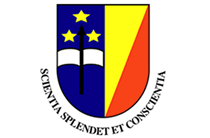 KEY PERSONNEL: Prof. Adalbert Otshomampita (PI), Prof. Kandolo Kakongo Dénis (Co-PI), Prof. Mbadu Zebe Victorine (Additional Key Personnel)
KEY PERSONNEL: Prof. Adalbert Otshomampita (PI), Prof. Kandolo Kakongo Dénis (Co-PI), Prof. Mbadu Zebe Victorine (Additional Key Personnel) KEY PERSONNEL: Prof. David Olaleye* (PI), Prof Georgina N. Odaibo (PD and Training Coordinator), Prof. Funmilayo Okanlawon (Co-PI), Dr Samuel Ajayi (Co-PI), Dr Charity Nwankwo (Co-PI), Mrs. Bose Bella (Finance Administrator), Mr. Seun Falayi (eLearning Coordinator)
KEY PERSONNEL: Prof. David Olaleye* (PI), Prof Georgina N. Odaibo (PD and Training Coordinator), Prof. Funmilayo Okanlawon (Co-PI), Dr Samuel Ajayi (Co-PI), Dr Charity Nwankwo (Co-PI), Mrs. Bose Bella (Finance Administrator), Mr. Seun Falayi (eLearning Coordinator)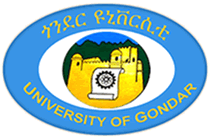 KEY PERSONNEL: Dr. Ashenafi Tazebew (PI), Dr. Alemayehu Teklu (Co-PI and eLearning Coordinator), Teshone Geletaw (Training Coordinator)
KEY PERSONNEL: Dr. Ashenafi Tazebew (PI), Dr. Alemayehu Teklu (Co-PI and eLearning Coordinator), Teshone Geletaw (Training Coordinator)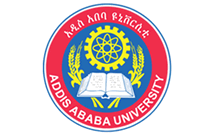 KEY PERSONNEL: Dr. Miliard Derbew (PI), Damen Hailemariam (Co-PI), Azmeraw Nigusie (Finance Administrator), Hailegebriel Bekele (eLearning Coordinator), Habtamu Messel (Training Coordinator)
KEY PERSONNEL: Dr. Miliard Derbew (PI), Damen Hailemariam (Co-PI), Azmeraw Nigusie (Finance Administrator), Hailegebriel Bekele (eLearning Coordinator), Habtamu Messel (Training Coordinator)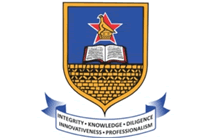 KEY PERSONNEL: Dr. Clara Haruzivishe (PI), Dr. Walter Mangezi (Co-PI), Dr. Jonathan Matenga (Project Advisor), Dr Midion Chidzonga (Project Advisor), Miriro Muvoti (Training Coordinator)
KEY PERSONNEL: Dr. Clara Haruzivishe (PI), Dr. Walter Mangezi (Co-PI), Dr. Jonathan Matenga (Project Advisor), Dr Midion Chidzonga (Project Advisor), Miriro Muvoti (Training Coordinator)


